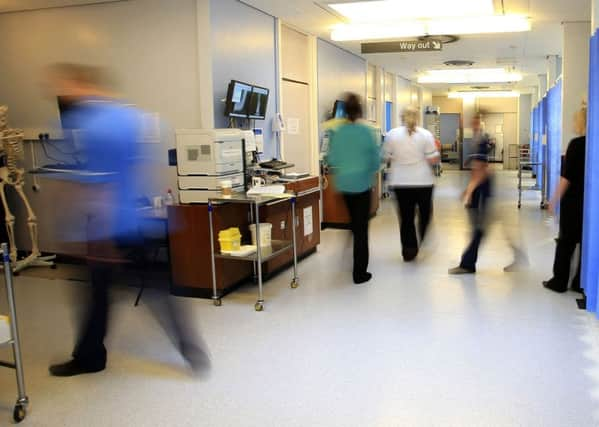'˜Being a doctor is certainly a strange mix of emotions. We can't solve every problem'


Being bed-bound on her summer holidays was an obvious factor in her change of heart, yet her response still left me pensive. Is medicine the attractive career it once was?
Earlier this month, I celebrated completing three years of work as a doctor while many others were beginning their first year.
Advertisement
Hide AdAdvertisement
Hide AdDespite my hand-me-down fob watch having broken, being on to my third stethoscope, and having used all the ink from an entire factory’s worth of pens, my passion for providing high quality care for my patients remains intact.
I still want to pursue research and clinical work and I still dedicate a lot of my time outside of work to various aspects of trying to help patients. I have, however, over time realised the importance of not only looking after my patients, but of making sure I am there to support my colleagues. My patients need them and I need them.
Last month, the General Medical Council national training survey revealed that over half of respondents say they are working beyond their rostered hours, and one in five say working patterns regularly leave them short of sleep.
Responding, the chair of the BMA junior doctor committee warned that the pressure of working in the NHS while it was at breaking point with underfunding and staff shortages was putting doctors at greater risk of burnout and fatigue.
Advertisement
Hide AdAdvertisement
Hide AdI celebrated my doctor anniversary by catching up with two old colleagues who I worked with at my first hospital.
Jeannie is now training in obstetrics and gynaecology and Mo is training to be a surgeon. We have decided to stay at the NHS, but some of my colleagues have dropped out or have decided to move abroad.
In a career destination survey of doctors in the UK in 2016, just over 50 per cent of doctors nationally progressed to specialty training after completing our first two years of broad ‘Foundation’ training, a drop of almost 21 per cent in the last five years – and the situation is not getting better.
As we talk about our different fields within medicine, Jeannie tells me all about her rota gaps and how in a few years she may too want to leave the country to practice elsewhere.
Advertisement
Hide AdAdvertisement
Hide AdMo tells me how much he loves learning to operate, but how he has had to move away from his partner and is struggling to pass his compulsory exams, which have already cost him over £2,000 in the last 18 months. Despite major differences in our work as doctors, we all agree that things need to improve.
Hospitals are struggling. Between December 2016 and March 2017, 94 of 152 trusts issued major alerts on at least one day to say they couldn’t cope.
Meanwhile there is a political shift towards focus on care in the community but, equally, healthcare in the community is under so much strain.
The pressure is felt on both sides – community care and hospital care directly impact each other.
Advertisement
Hide AdAdvertisement
Hide AdDespite all of the scary statistics, I know that the reason we haven’t entirely crumbled is because my colleagues continuously pull together to deliver excellent care.
This is something I witnessed last month when my dad had an unexpected heart attack. He was seen by a junior doctor in York, who quickly realised he was having a type of heart attack which needed specialised intervention in Leeds. It was a true example of 24/7 care; he was swiftly transferred and received a life-saving intervention at 3am on a Sunday night where they inserted a stent into a blood vessel supplying his heart. My dad told me that despite how busy staff were, they each did their best to put him at ease.
I know how hard NHS workers push themselves, but I am concerned how long this can last when we are all running on an ever-diminishing reserve.
Just as my dad received excellent care, it is a privilege to be part of a team who provide excellent care for children. Being part of a system which provides care all over the UK, which is publicly funded and publicly provided, is such a privilege.
Advertisement
Hide AdAdvertisement
Hide AdThe youngsters that I see at Sheffield Children’s Hospital come from all sorts of backgrounds with all sorts of conditions, but their families know that when they come to our hospital, they are treated as individuals and as valued equals.
Being a doctor is certainly a strange mix of emotions. We can’t solve every problem. There are many frustrations and challenges that come with working in an under-resourced and politicised healthcare system. But when I see my patients, each battling with incredible personal journeys.
I know that despite 13-year-old Maya changing her mind, I still want to be a doctor.
Dr Melody Redman is a junior doctor training in children’s medicine in Yorkshire and is a BMA representative.